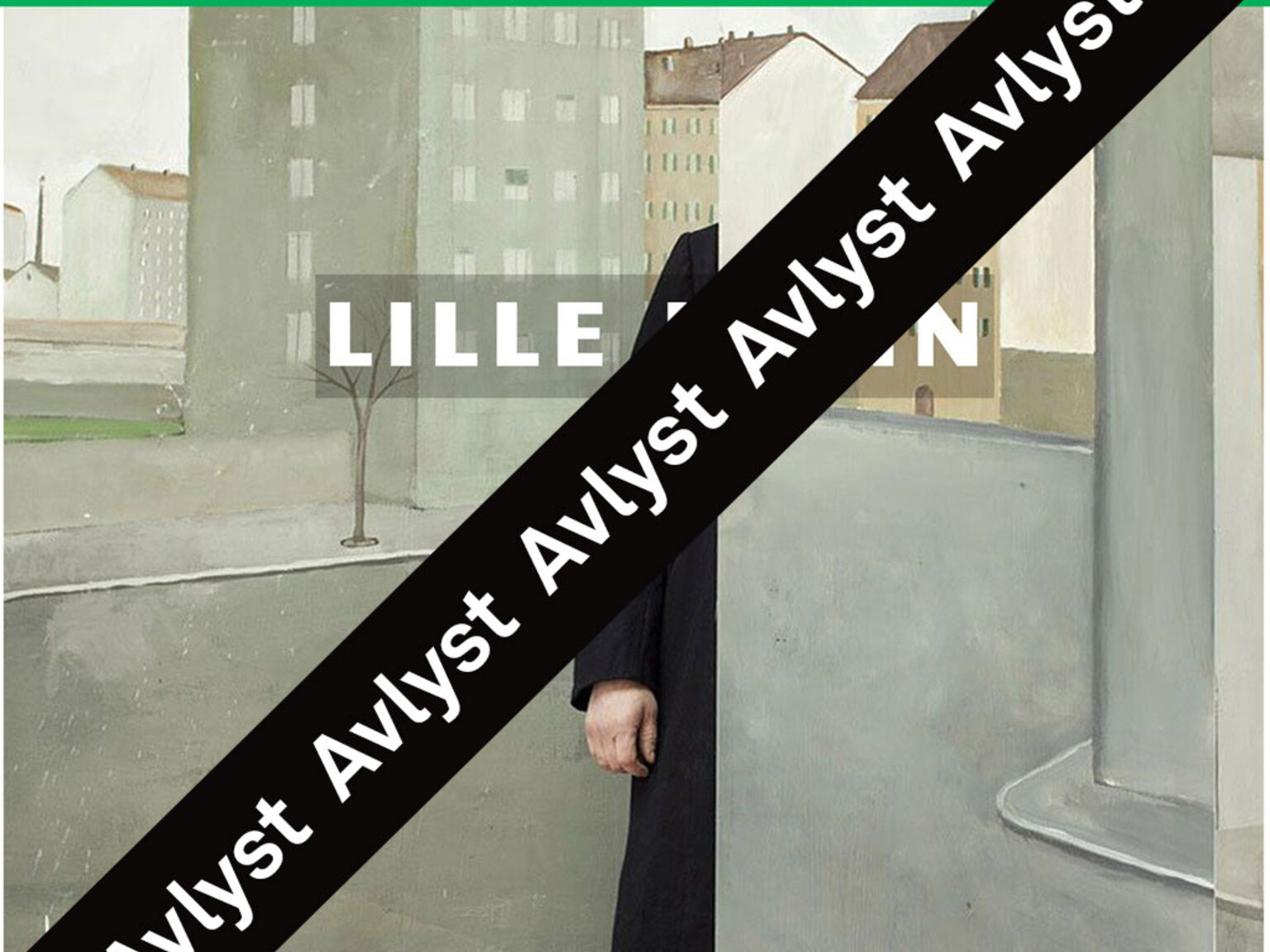
The Corona Cohort
Spring 2020 was definitively not as expected. Not that you can entirely know what to expect during the madcap finish to your degree, but COVID-19 was not part of the plan at all. We asked graduation students from each of our six departments how they have been and what they think about the artist’s role.
What has it been like to study from home during the pandemic?
Edith Strand Askeland (Bachelor’s in contemporary dance): The department was quickly able to establish alternative home-based training through video conferences, and we were also assigned creative projects to do from home. For my part, the home school began with having the flu, which knocked me out and made it hard to carry out large parts of the physical training, which of course is a major component of dance education. But trying to create something with minimal energy, minimal space and minimal equipment taught me plenty of new things about creating and how a future life as a freelancer might be in some respects.
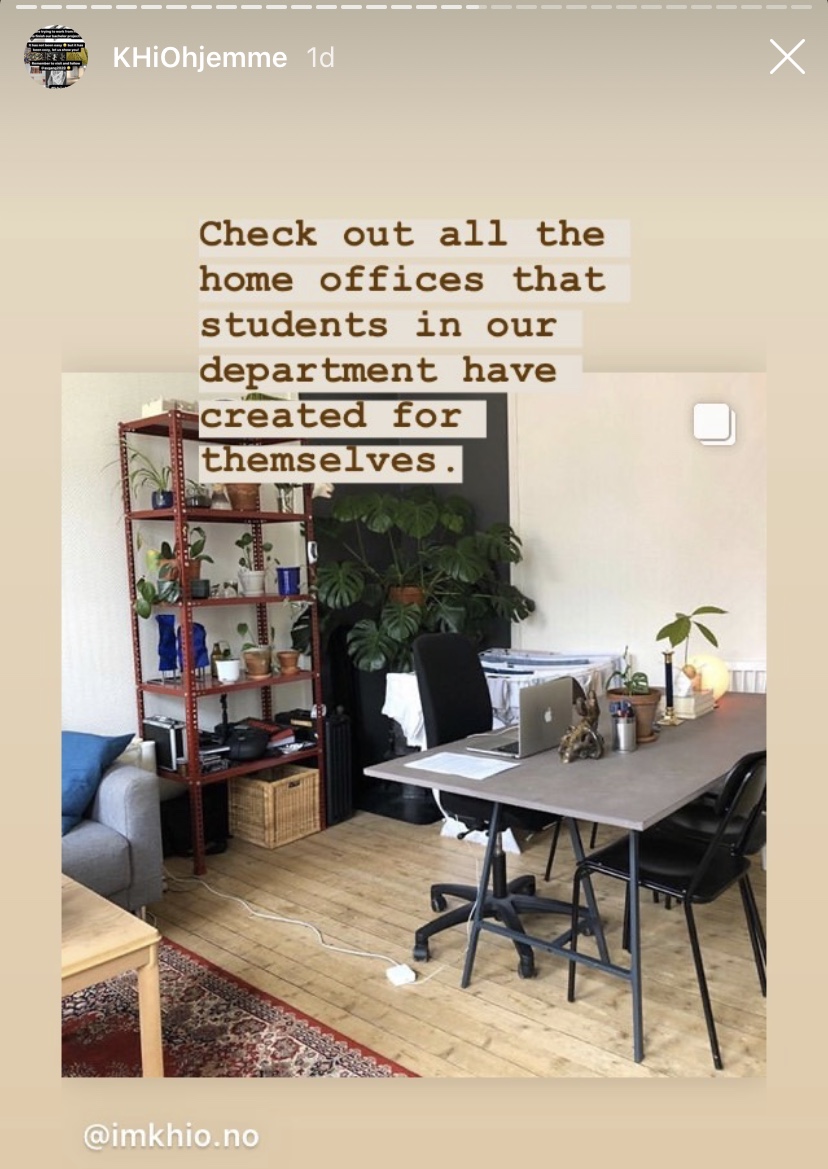 Julia Pauline Boracco Braaten (MFA in Medium- and Material Based Art): The department was quickly able to establish alternative home-based training through video conferences, and we were also assigned creative projects to do from home. For my part, the home school began with having the flu, which knocked me out and made it hard to carry out large parts of the physical training, which of course is a major component of dance education. But trying to create something with minimal energy, minimal space and minimal equipment taught me plenty of new things about creating and how a future life as a freelancer might be in some respects.
Julia Pauline Boracco Braaten (MFA in Medium- and Material Based Art): The department was quickly able to establish alternative home-based training through video conferences, and we were also assigned creative projects to do from home. For my part, the home school began with having the flu, which knocked me out and made it hard to carry out large parts of the physical training, which of course is a major component of dance education. But trying to create something with minimal energy, minimal space and minimal equipment taught me plenty of new things about creating and how a future life as a freelancer might be in some respects.
Tone Elisabeth Bjerkaas (Master’s in design): As luck would have it, I was able to borrow a studio and avoided having to work from home during this period – I had worked for HAiKw/ for a few years before I started at KHiO, and when the school closed, they were extremely generous and gave me a key and free access to their studio. It was nice to have a workplace to go to and not have to live right in the middle of your own projects, like I know many, many students have had to. 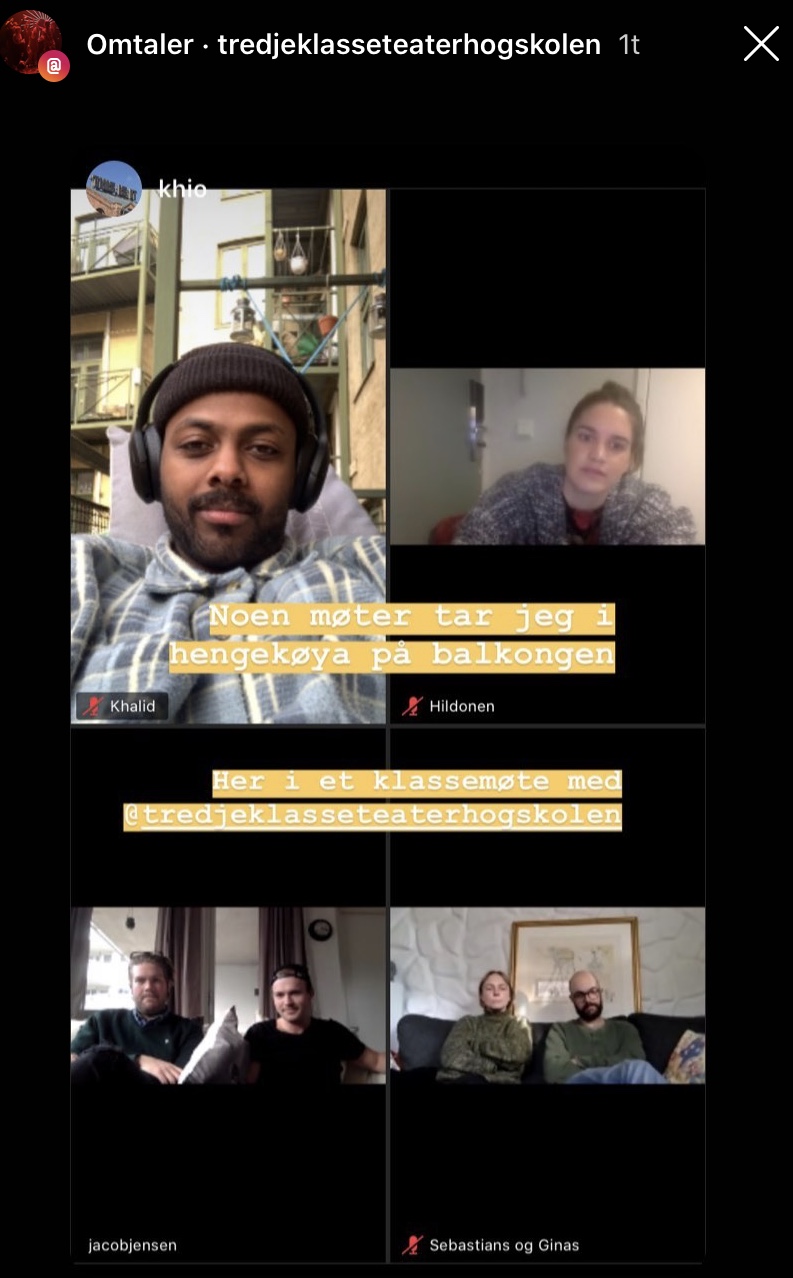
Khalid Mahamoud (Bachelor’s in acting): I have had a home office, or rather a home school desk. We took part in a film course with Ole Giæver, where we created several short films on our own using our smartphones. We participated in different lectures on Zoom with artistic directors and professional actors. We have had to do physical exercises or yoga at home in order to keep our bodies and minds ready to return to everyday life. I’ve pursued both old and new hobbies.
Coronavirus, or COVID-19, has been a tragedy, but for me it was exactly what I needed. After two years at Nordic Black Xpress and three years at KHiO, I needed some time for myself. I’ve also taken the time to reconnect with people.
During Ramadan I focused on fasting, thinking about how lucky I am and appreciating what I have.
Eldrid Gorset (Master’s in opera): It’s been very challenging given that opera requires good facilities and not least colleagues. Much of your time is spent on rehearsing, and it isn’t optimal to sing opera when you have neighbours behind every wall. That said, it has been useful to get a taste of life as a freelancer and to consider how I want to set up my daily schedule. And I became really emotional when I realised how much I came to miss singing both with and for other people! It was reassuring to get confirmation that I’ve chosen the right path!
Kaare Ruud (Master’s in fine art (MFA)): Following the global developments has been really awful, particularly when I catch myself checking out the latest death tallies on VG. I haven’t entirely been able to be on social platforms, and I developed a phobia for e-mails because I was afraid they could contain bad news.
At the same time, I had often thought that people didn’t need to see what I do, but now I discovered that I need confirmation from others – that I’m not just doing these weird things that I alone am allowed to experience. Incidentally, working at home has turned out just fine for me – in my practice I actually work with objects from home. I’ve previously played a lot of video games, for several years, so I’m used to spending a lot of time indoors. During the COVID-19 lockdown I just switched the video games out with making art. I was actually very pleased with the works I made during that period, because there weren’t all that many possibilities and I had to be satisfied with what I managed to accomplish. When I returned to school, I became more uncertain – so many possibilities opened up when I had access to the workshops and the studio again.
What has the school done to accommodate your situation much as possible?
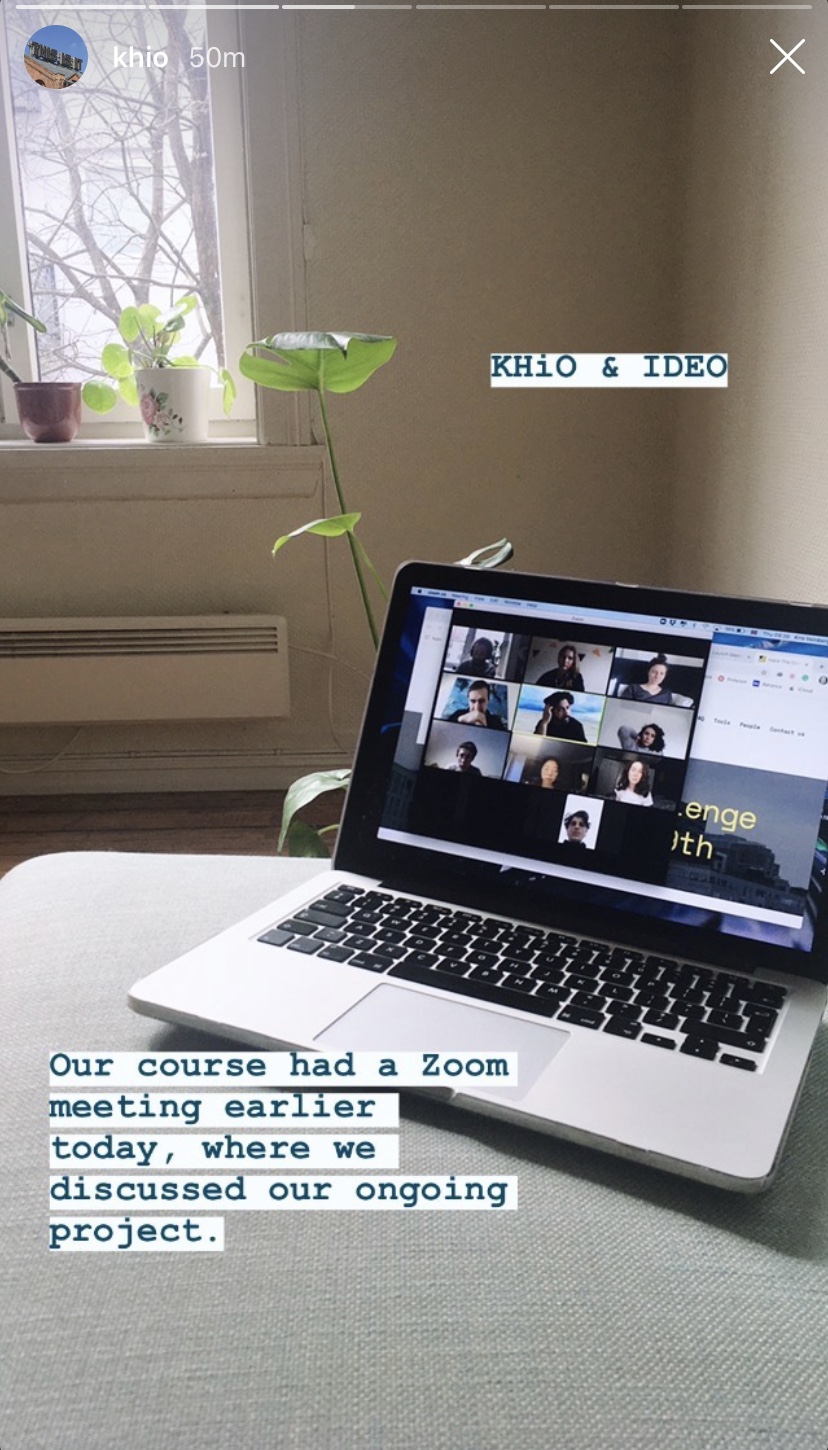 Edith Strand Askeland (Bachelor’s in contemporary dance): The school set up morning classes and adjusted the creative projects as much as they could to the situation at hand. As final-year students, we were among those fortunate enough to be allowed back first, but we were divided four and four into half-size classes in the studios, and were taught over Zoom. It was strange to be so good classmates and school friends without being allowed to have any contact – as dancers we are of course very physical in our work, so not being able to hug each other just seemed bizarre. When the entire class came together at the end of the semester, student life became fairly normal again – except, of course, for the absence of people in the building, the lack of common areas to hang out in and the limited opening hours.
Edith Strand Askeland (Bachelor’s in contemporary dance): The school set up morning classes and adjusted the creative projects as much as they could to the situation at hand. As final-year students, we were among those fortunate enough to be allowed back first, but we were divided four and four into half-size classes in the studios, and were taught over Zoom. It was strange to be so good classmates and school friends without being allowed to have any contact – as dancers we are of course very physical in our work, so not being able to hug each other just seemed bizarre. When the entire class came together at the end of the semester, student life became fairly normal again – except, of course, for the absence of people in the building, the lack of common areas to hang out in and the limited opening hours.
Julia Pauline Boracco Braaten (MFA in Medium- and Material Based Art):
Answering that question is a bit “shoulda, woulda, coulda”. I have definitely been frustrated and thought that certain things should have been done differently. I myself was lucky enough to be given access to the workshops early on after the lockdown. Many students lost valuable workshop time and were denied the experience of setting up an exhibition with others, which is actually part of the curriculum here at KHiO and a requirement for graduating. Not to mention all the exposure such an exhibition can lead to.
I’ve spoken with many of my despairing co-students whose energy just drained away after trying to get the school to implement what were, in my opinion, both reasonable and feasible measures that would have beefed up the education the final-year Bachelor’s and Master’s students were receiving. It will be exciting to see what the school will do for these students in the wake of this pandemic – and not least the international students, who have to travel back home, cap in hand, when their visa expires.
Tone Elisabeth Bjerkaas (Master’s in design):
I’ve been among the lucky ones who have had a workplace to go to – the studio of my former employer HAiKw/ – so I haven’t had to adapt my home all that much during this period.
 Khalid Mahamoud (Bachelor’s in acting): The school and the administration have done their level best to make sure that we as students get what we need. They have engaged in a continuous dialogue with us and assured us that we will be able to complete our studies. The school deserves a standing ovation on that count.
Khalid Mahamoud (Bachelor’s in acting): The school and the administration have done their level best to make sure that we as students get what we need. They have engaged in a continuous dialogue with us and assured us that we will be able to complete our studies. The school deserves a standing ovation on that count.
On the other hand, the school really needs to start showing a better understanding of different backgrounds, cultures, religions and orientations. The Theatre department is built on an old system that we have to dare to challenge. We must dare to show a deeper understanding of people and their particular issues and meet them with an open mind.
Eldrid Gorset (Master’s in opera):
Unfortunately, the school has been very restricted by the guidelines, and I myself experienced a lack of understanding of what opera actually requires. When the school was entirely closed down, there was little interaction with the school, and it was very frustrating not to perform opera. But I did learn a lot from the situation, and I worked actively to find inspiration by watching opera streams from places like the Met, and I got the time and energy to practise both physically and mentally, which of course are equally important.
Kaare Ruud (Master’s in fine art (MFA)): We had Zoom meetings once a week with Ane Hjort Guttu, my supervisor. We soon dropped the group criticism sessions and talked more about how we were doing, which book we had read and more trivial stuff, so as to not focus so intensely on our production. It was really strange when we regained access to the school. We were only a few classes who were given access – and considering how much space there is at KHiO, it almost felt like I was alone. Walking over to my studio, I felt a bit like a ghost haunting the academy’s hallways. At the same time, I got to know the people at the reception better, since they were always there during opening hours. I have also appreciated the letters from our rector, Måns Wrange. During such a chaotic time it was good to know that he tried to find a solution for us students in our little world.
How do you see the role of the artist both during the pandemic and afterwards?
Edith Strand Askeland (Bachelor’s in contemporary dance): For me, the role is even more crucial than ever. Art is something that unites, relaxes and challenges, and we always need that. Above all, the relaxing aspect of art has been necessary during this vulnerable time. The field has really been tested by having to make a U-turn in regard to audience limitations. As a result, we’ve learned how alive art is and how flexible it can be.
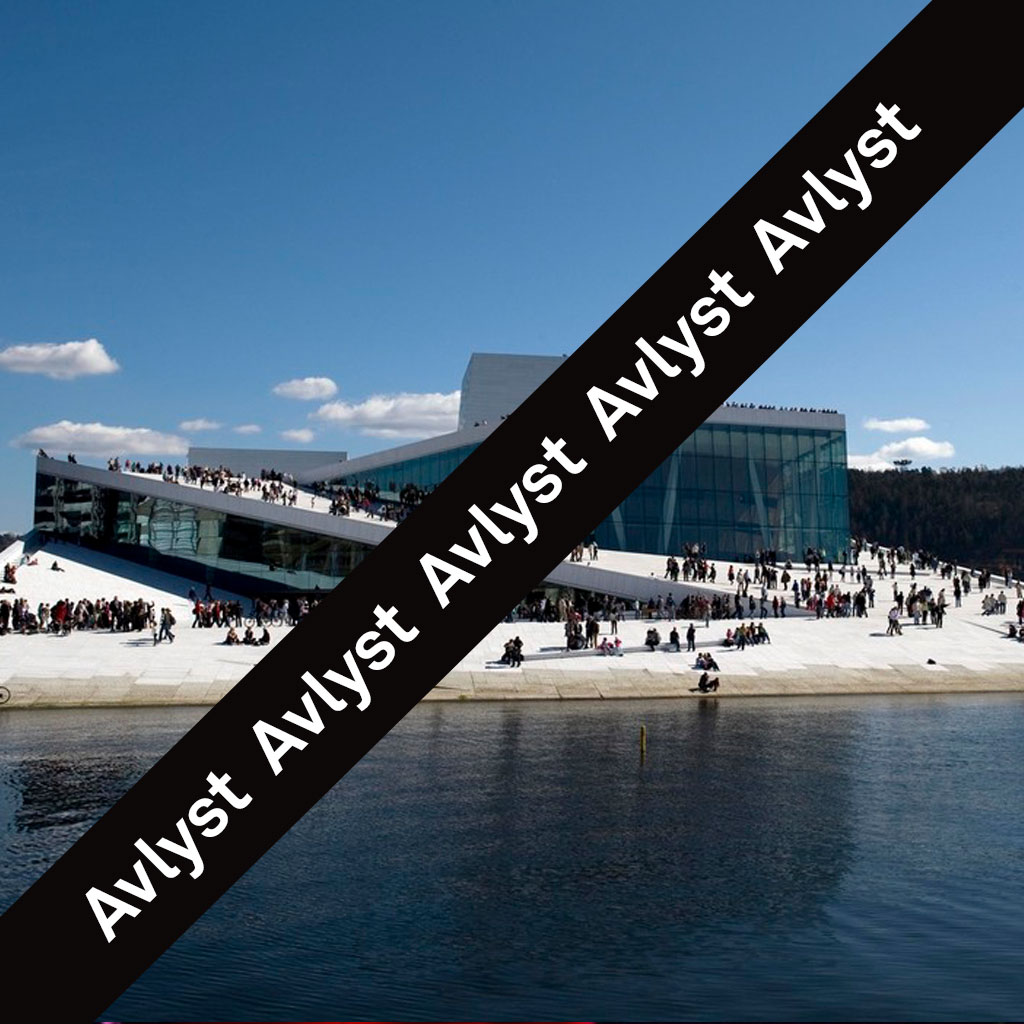 Julia Pauline Boracco Braaten (MFA in Medium- and Material Based Art): This global crisis, with all its challenges, has obviously put my education in perspective. It is easy and safe to be in your own bubble, but suddenly your world is on fire on all sides and it becomes thornier to argue for your own needs related not only to production, but also to the importance of the work you do.
Julia Pauline Boracco Braaten (MFA in Medium- and Material Based Art): This global crisis, with all its challenges, has obviously put my education in perspective. It is easy and safe to be in your own bubble, but suddenly your world is on fire on all sides and it becomes thornier to argue for your own needs related not only to production, but also to the importance of the work you do.
Many students have also felt the pressure in regard to transferring their works to digital platforms and finding alternative modes of presentation. Art is obviously a wide-ranging field and some things are perhaps more transferable than others, but it is clear that this has been challenging for the entire field. I myself have experienced that projects and exhibitions, such as the graduation exhibition here at KHiO, have been cancelled because of COVID-19.
As my supervisor said to me when the school closed during the pandemic, “Have courage!”
But, yeah, it’s probably going to be tough for quite some time.
Tone Elisabeth Bjerkaas (Master’s in design):
Historically, times of crisis have led to paradigm shifts and a lot of great art, and as I see it, the current crisis has the same potential. Artists are flexible and creative – those are good traits to have when facing a new daily reality where the terms of how we live our lives are changing. Many people in the art and culture sector are going through a rough patch right now, and the government have not been there for us with crisis packages in the same way they have for other branches. This forces us to mobilise and rethink things. The crisis has made it abundantly clear to us that we simply have to help one another and think more collectively. I hope that when we’re on the other side of this crisis, we’ll have managed to unite and do something for the planet we live on – and not just for us, but for everyone.
Khalid Mahamoud (Bachelor’s in acting): The role of the artist is just as important now, and perhaps even more so. But theatre is a terrible artform to present on a screen. What is special about theatre is that we are all together and can create moments that transcend time and space. In my opinion, this just does not work as well online. The world is going to open up again, and so I think the time we have now is important to use to prepare works and get new concepts ready and perhaps find other literary works that haven’t been used so frequently.
Eldrid Gorset (Master’s in opera): I am ambivalent about the sudden explosion of concert streaming because I think it spoils the musical and operatic experience. I also fear that this will worsen our financial conditions as stage artists – we still need to butter our bread! Still, I have to emphasise the importance of continually developing the artform and ensuring that art reaches the people, and I am prepared to have to be open to new ways of making opera. But opera is ultimately a live artform, and we need the public and the government on our side to be able to make it happen! We have to fight for our cause!
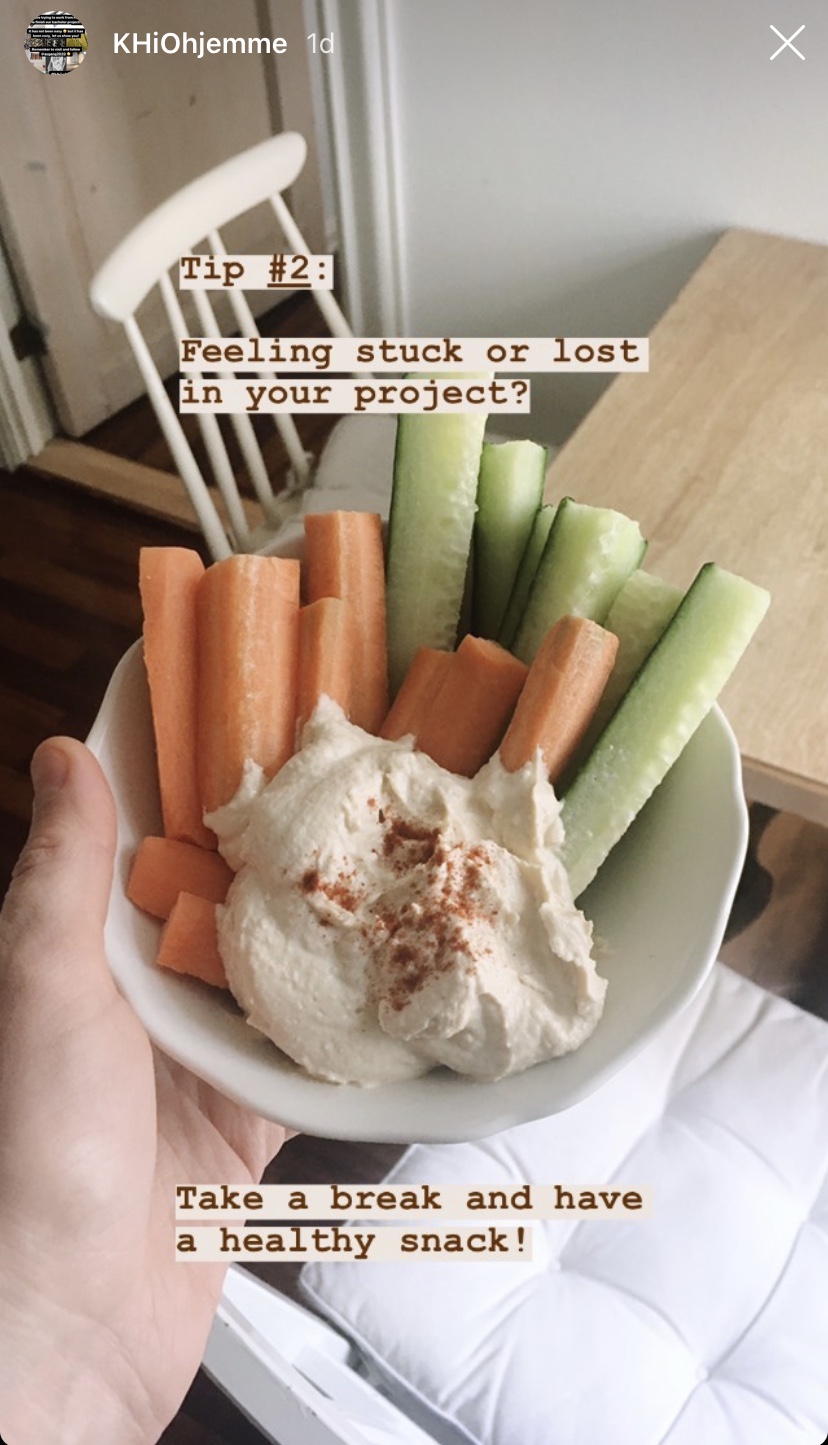 Kaare Ruud (Master’s in fine art (MFA)): I suppose we’ll have to wait and see – it’s not over yet. I think that to a large degree it’s about being a witness to such an event. Maybe we can talk things over and take a critical look at what happened during the outbreak when things have quieted down. I think that everyone who has managed to just get out of bed and drink a cup of coffee, eat some food, and water their plants or take care of other daily tasks has done a good job.
Kaare Ruud (Master’s in fine art (MFA)): I suppose we’ll have to wait and see – it’s not over yet. I think that to a large degree it’s about being a witness to such an event. Maybe we can talk things over and take a critical look at what happened during the outbreak when things have quieted down. I think that everyone who has managed to just get out of bed and drink a cup of coffee, eat some food, and water their plants or take care of other daily tasks has done a good job.
I don’t think I can answer what the role of the artist has been during the pandemic, but I am anxious to see how COVID-19 will influence art going forward. How will everything from installations to films be affected by our relationship to contagion prevention and hygiene? Will people touch the same thing as the previous viewer, or dare to sit in the same place as the person before us? Will we still have to disinfect headphones? All in all, I guess I am most interested in whether we can think in a “normal” way again – or whether this is in fact the new normal.